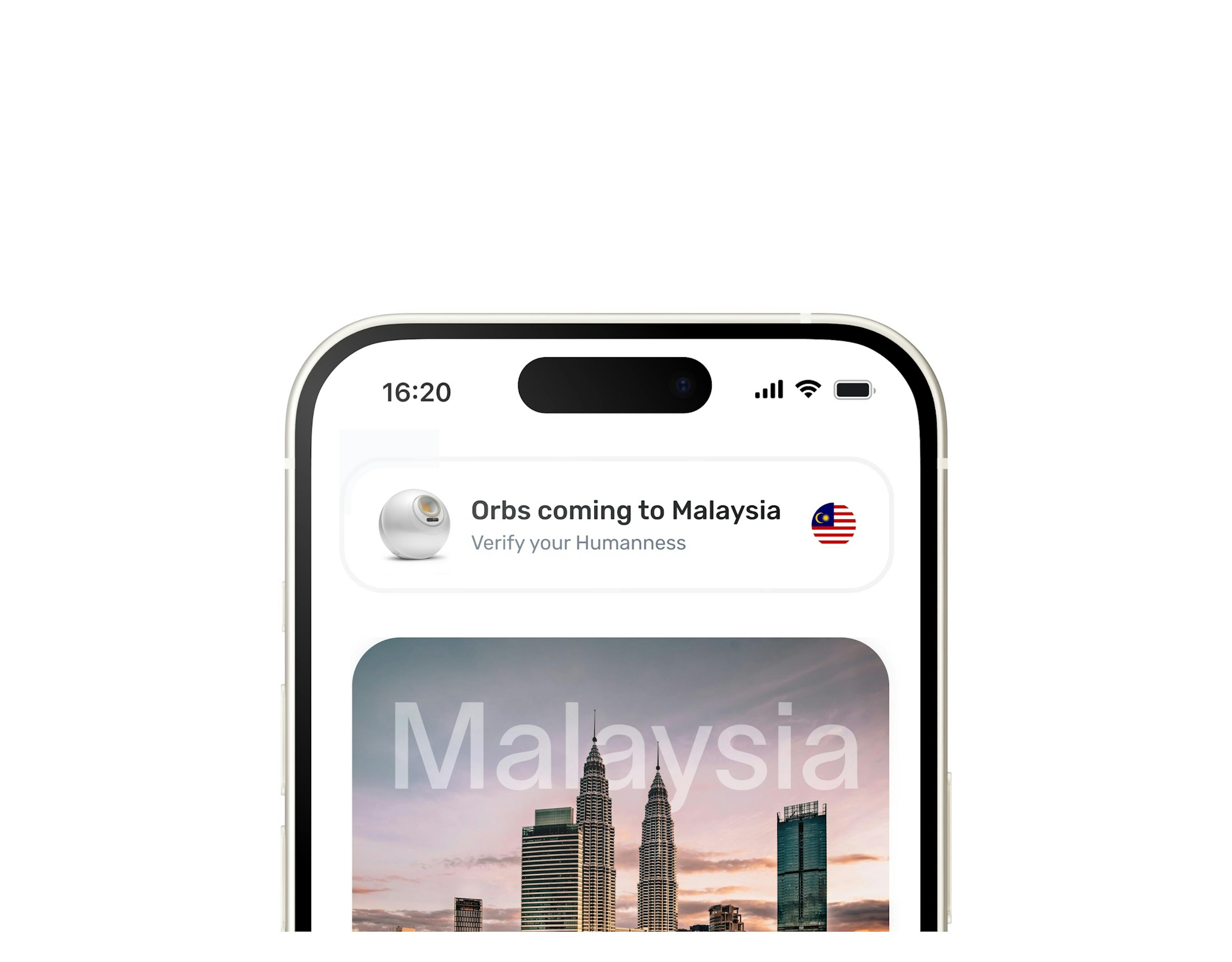Malaysia adopts Worldcoin’s iris scan tech for digital ID
Malaysia has decided to integrate Worldcoin’s controversial iris-scanning technology into its national digital infrastructure. The partnership involves a memorandum of understanding (MoU) between the Worldcoin Foundation, Tools for Humanity (TFH), MyEG, and MIMOS Berhad, the government’s research and development arm. Worldcoin’s iris scan technology has been touted as some next-level, sci-fi stuff where a scan […]

Malaysia has decided to integrate Worldcoin’s controversial iris-scanning technology into its national digital infrastructure.
The partnership involves a memorandum of understanding (MoU) between the Worldcoin Foundation, Tools for Humanity (TFH), MyEG, and MIMOS Berhad, the government’s research and development arm.
Worldcoin’s iris scan technology has been touted as some next-level, sci-fi stuff where a scan of your eyeball determines your identity.
Worldcoin’s new playground: Malaysia
With the MoU signed, Worldcoin is ready to roll out its operations in Malaysia. The collaboration will enable Malaysians to verify their “humanness” through TFH’s iris imaging technology.
If that sounds intense, it’s because it is. We’re talking about a system that scans your iris and uses that data to prove you’re a living, breathing human being—not an AI bot.

The deal also opens the door for other collaborations. These include manufacturing Worldcoin’s signature orbs—those fancy gadgets used for the iris scans—and potentially linking Worldcoin’s blockchain system with Malaysia’s National Blockchain Infrastructure.
Global expansion amid heavy concerns
Malaysia isn’t the first country to get onboard with Worldcoin’s technology. The company has already launched similar initiatives across Europe and Latin America, bringing its total number of verified users into the millions.
But while it’s gaining ground, Worldcoin’s journey hasn’t been without its bumps. Earlier this year, it introduced a secure multi-party computation (SMPC) system.
This fancy bit of cryptography allows the iris data to be split into multiple parts, ensuring privacy. It’s supposed to guarantee that no one—not even Worldcoin—can piece together your biometric information.
They claim it’s the ultimate solution to privacy concerns, but given the global scrutiny the company has faced, not everyone is convinced.
2024 has been a rough year for Worldcoin, with regulatory bodies around the world slapping the project with scrutiny and sanctions. Hong Kong was one of the first to pull the plug on Worldcoin’s operations.

The Monetary Authority of Hong Kong shut down its activities in May 2024, citing violations of privacy laws. This came after a series of inspections revealed massive risks to user privacy, forcing Worldcoin to pack up and leave.
Spain hasn’t been any kinder. Worldcoin’s operations there were suspended earlier this year, and the ban was extended until at least the end of 2024.
The Spanish Data Protection Agency (AEPD) had raised serious concerns about how personal data was being handled, leading to a freeze on all activities.
TFH, the organization behind Worldcoin, agreed to the pause, working with Germany’s Bavarian Data Protection Authority (BayLDA) to ensure compliance with GDPR regulations.

The project has been put under the microscope in so many other countries too, including India, South Korea, Germany, and Brazil. The common thread? Concerns over how the company collects and uses biometric data.
Governments are worried about potential misuse, and investigations have been launched to get to the bottom of it. But it’s not all doom and gloom. In Kenya, Worldcoin managed to dodge a bullet.
The country’s Directorate of Criminal Investigations (DCI) had suspended the project back in August 2023, but after a thorough investigation, they found no grounds for further action.
With the investigation closed, Worldcoin representatives told us they are hopeful about resuming operations in Kenya.
What's Your Reaction?









































































































